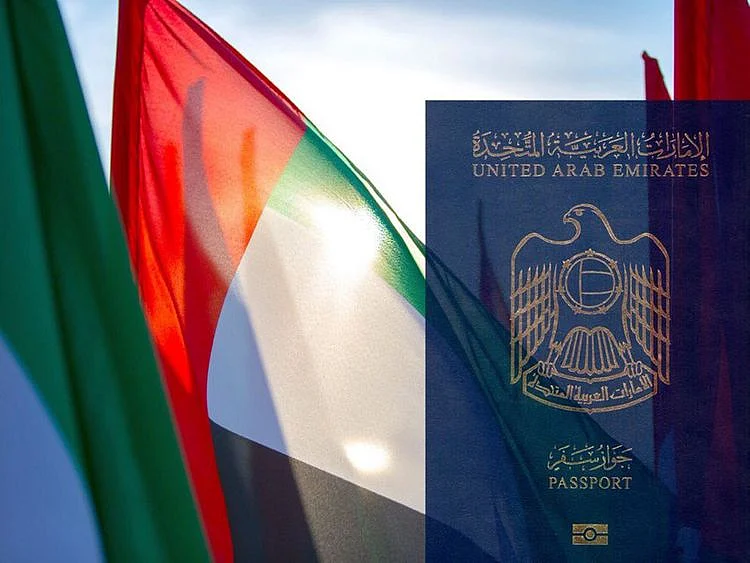UAE is world's most powerful passport: This is how the world’s passports are ranked on their influence
UAE passports score top rankings, and that is based on a combination of measures

In 2022, the UAE ranked first on the Passport Index’s ‘Global Passport Power Rank’ and ‘Individual Passport Power Rank’. But how?
With hundreds of passports in the world, and several ranking systems in place, understanding what determines the actual value of a passport is intricate. Acquiring a second passport, or relinquishing citizenship in one country to immigrate, is an increasingly popular trend. For individuals who are interested in pursuing such opportunities, understanding what contributes to a passport’s power is essential to decipher what is in their best interest during this process.
Each index has varying criteria for why one passport is more valuable than another, but here are some key considerations to assess when analyzing a passport’s strength:
Passport power rank
‘Mobility Score’ is a standard metric of measurement, and typically the first factor to be considered, among all indexes. MS considers the number of countries that any given passport can easily access. It is determined by a total of factors including electronic travel authorization (eTA), visa-free (VF), and visa-on-arrival (VOA) capability.
If you travel frequently, then a high MS is essential for facilitating a seamless entry and exit experience between countries. For example, the UAE passport grants VF travel to 114 countries, VOA to 55, and eTA to seven, equating to its total MS of 174 on the Passport Index.
Comparatively, Canada’s passport accommodates VF travel to 107 countries, VOA to 54, and eTA to six, contributing to its slightly lower fifth-place global position in this year’s rankings. In essence, a passport’s global ranking is primarily predicated on MS; the higher this value is, the more powerful a passport is perceived to be. If two passports share the same MS value, they are ranked as the same.
For instance, while the UAE stands atop of the leaderboard, 12 countries trail them with the same MS of 170: Germany, Sweden, Finland, Luxembourg, Spain, Italy, Holland, Austria, Switzerland, Japan, and South Korea are all tied at a second-place.
Individual passport power rank
Germany and Sweden are two of 10 countries that have an MS of 170, and thus both rank equally at second place on the Global Power Rank. For the Individual Power Rank, Germany retains second place but Sweden sits at 16th - why?
Germany facilitates VF travel to 116 countries to edge Sweden’s 115, Sweden enables VOA to 47 to edge Germany’s 46, and both countries provide eTA to eight. Passport Index’s methodology does not consider eTA, but it does place weight on VF and VOA.
Given that VF is viewed as more advantageous than VOA, it accordingly holds more weight to help Germany surpass Sweden. However, this is not the sole reason for a 14-spot discrepancy between the two countries.
Developed by the UN, the Human Development Index is a metric that measures a country’s global perception. It is used as a tie-breaker by quantifying a country’s performance in three dimensions: a long and healthy life, knowledge, and a decent standard of living.
The first dimension considers life expectancy at birth, while the second considers both the expected years of schooling and the average years of schooling, and the third and final dimension considers GNI (Gross National Income) per capita.
Based on these considerations in 2022, Germany holds a total HDI score of 0.936, while Sweden’s score is 0.933. Though the difference appears minuscule, the impact is major.
Overall potential
The MS, VF, VOA, and the HDI are all tangible metrics, but other indefinable characteristics play a part when trying to determine what passport is right for you - especially in the case of Citizenship-by-Investment (CBI) and Residency-by-Investment (RBI).
For example, St. Kitts & Nevis’ CBI program is highly appealing with the vast variety of benefits that its passport offers. This includes VF travel to 160 countries, sponsoring multiple family members at a lesser price than that of the global average, and capitalizing on tax benefits.
With the world continually advancing in technology, the metaverse could eventually be something to keep in mind. Millions of people are born with passports that restrict their mobility and hinder access to opportunities. If the metaverse’s potential is realized, the circumstances they were born into could remove these limitations.
Determining which passport is most ideal for a person ultimately depends on their priorities. If VF travel is of the utmost importance, then Malta’s ability to facilitate this to an impressive 167 countries could be an option; if education is the deciding factor, Portugal could be ideal with its RBI program having no restriction on dual citizenship and allowing visa holders to live, study, and work around Europe’s Schengen area.
At the end of the day, every passport is different. Each passport provides its advantages and disadvantages but the true value depends on your objectives.
Network Links
GN StoreDownload our app
© Al Nisr Publishing LLC 2026. All rights reserved.